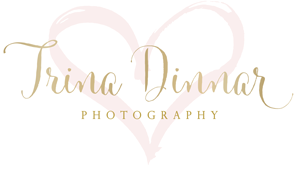Essential Photography Gear Every Wedding Photographer Should Have
Unlike other genre's of photography, like family or Senior portraits, wedding photography involves capturing moments that can never be recreated. It is for that reason that wedding photographers should ensure that they not only have the right gear to do the job, but that they also have backup gear. While some photography gear may be optional, there are many widely agreed upon items that wedding photographers should use to ensure the best results on this once in a lifetime occasion.
1. Two Cameras
Every wedding photographer should have a full frame camera and a back-up camera that is preferably full frame. Full frame cameras differ from crop sensor cameras in that they are notable sharper, render color better, and they actually capture more of any given scene. The term "crop sensor" means that the sensor of the camera crops out some of the image. These cameras tend to be entry-level and while they are okay for a backup camera, I highly recommend any photographer shooting weddings uses at least one full frame camera.
2. Fast Lenses that Cover Various Focal Lengths
Let's face it. There's not one lens that can do everything. From wide angle to telephoto to macro, lenses cover focal lengths in various ranges. Wedding photographers should have lenses that cover wide angle, such as 24mm or 35mm (or even wider). They should also be able to cover mid-range focal lengths, like 50mm. Another focal length that should be covered is the portrait focal length. I consider that range to be 70-200mm. Another type of lens to consider is a quality macro lens.
Aside from focal lengths, there's another thing to consider: fast lenses. What is a fast lens? A fast lens is one that can handle shooting in low-light conditions and is capable of shooting at a wide aperture, such as 2.8 or less. Prime lenses are a great example of fast lenses because many of them open up to 1.8, 1.4 or even 1.2. Prime lenses are excellent for low light situations, especially ones in which flash is not allowed (such as some churches). Not all zooms are created equal. Some zooms only open up to f/4, while the fastest zooms open up to f/2.8. While a zoom with a widest aperture of f/4 may perform well in optimal lighting conditions, wedding photographers will want to invest in fast zooms so that they are prepared for any lighting situation.
Wedding photographers should also be prepared by having back-up lenses. No piece of equipment will last forever and photographers need to be prepared in case of breakage or a malfunction during a wedding.
3. Multiple Flashes
I'm a big fan of using natural light whenever possible. However, there are certain times where flash is a must! A wedding photographer should not only have flashes but know how to use them. You never know when a lighting situation will be less than ideal and by having flashes ready to go, wedding photographers can create beautiful images in any lighting scenario.
4. Accessories
There are lots of accessories wedding photographers should have on hand but the most important accessories are memory cards and charged batteries. Not only do memory cards fill up, there is also a small chance that they can become corrupt. This is a wedding photographer's worst scenario. I highly recommend carrying several empty, formatted memory cards during a wedding.
As for batteries, wedding photographers should have at least one backup camera battery per camera. The batteries should be fully charged. Wedding photographers also need to carry lots of charged batteries for flashes and other accessories.
Of course there are many other accessories wedding photographers use at weddings including flash modifier, flash gels, light stands, tripods, etc. These types of accessories can vary, depending on the photographer's shooting style.
________________________________________
What's in my bag?
· (2) Nikon D700 full frame cameras
· Tamron 70-200mm f/2.8 with VC
· Nikon 85mm f/1.8
· Nikon 50mm f/1.8
· Tamron 24-70mm f/2.8 with VC
· Sigma 35mm f/1.4
· (2) Nikon SB700 flashes
· Flash triggers
· (15+) Charged flash batteries
· (6) Charged Camera Batteries
· (5) 32GB Memory Cards (Empty and Formatted)
· Flash Modifiers: gels, diffusers, etc.
My most used wedding photography gear.

